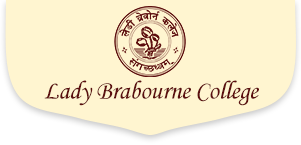College Overview
“ The journey of a thousand miles begins with a single step ”
The existing colleges for girls in Calcutta are hardly sufficient to meet growing demands for the higher education of girls, and the arrangements in them are neither satisfactory nor suitable for Muslim girls. It has therefore been decided to open from July 1939 a new college for Muslim girls to be named ‘The Purdah College’ in which non-Muslim students will also be admitted to the extent of vacancies available.
— Proceedings of the Government of West Bengal, April 1940,
File No. 4-C-19(i) of 1939 West Bengal State Archives, Kolkata
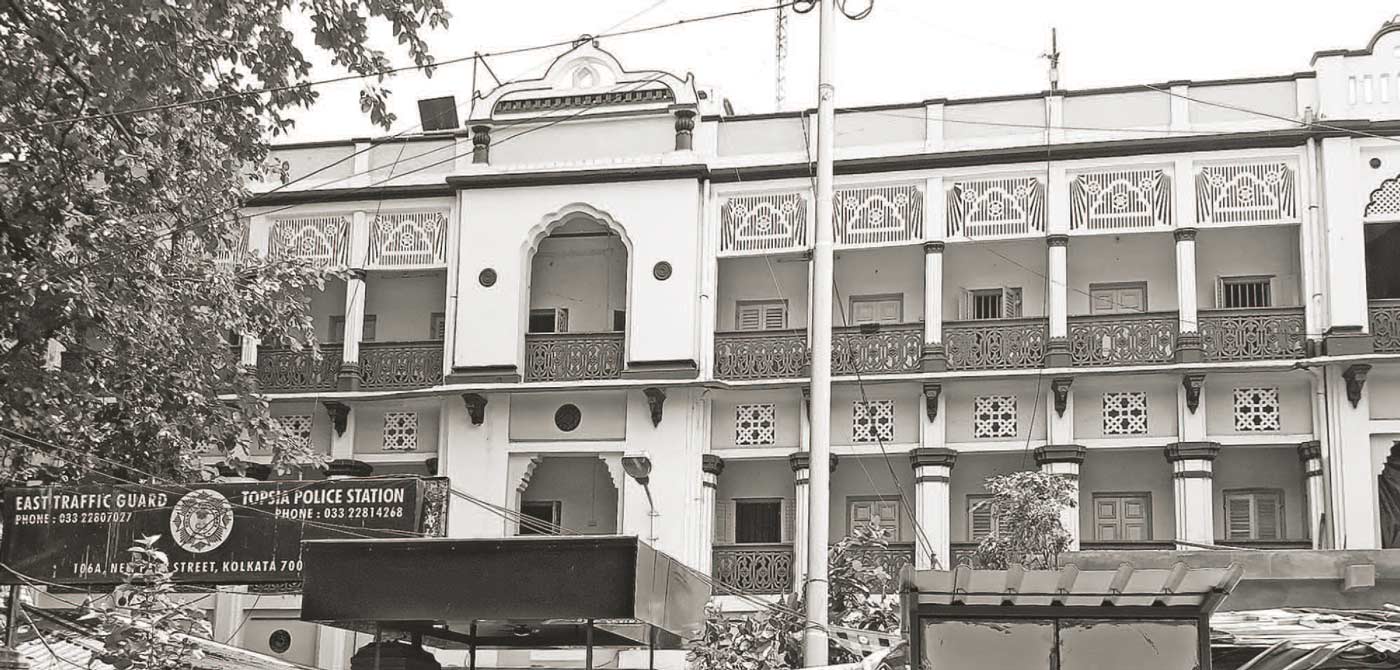
106A, Park Street, the rented premises from where the journey began. Now it houses East Traffic Guard, Topsia Police Station
- The journey thus began in March 1938, from a rented house (106A, Park Street) situated in the same Park Circus area where Lady Brabourne College is located today.
- Hon’ble A.K. Fazlul Huq, the then Prime Minister of undivided Bengal, announced the establishment of a Purdah College to address the issue of Higher Education among Muslim women.
- On 26th August, 1939 the Governor of Bengal, Sir John Woodhead laid the foundation stone on a spacious plot in Park Circus where the College shifted in 1941 to its present premises at P-1/2 Suhrawardy Avenue, Kolkata – 700017.
- It was soon named Lady Brabourne after the lady who had been instrumental in making Huq’s efforts become a reality. Doreen Knatchbull Lady Brabourne was the wife of Michael Herbert Rudolf Knatchbull Brabourne (Lord Brabourne), the late Governor of Bengal.
- Initially meant for Muslim girls, the College opened its doors to non-Muslim women the very next year i.e. 1940 as “it was decided that 40% of non-Muslim students would be taken”.
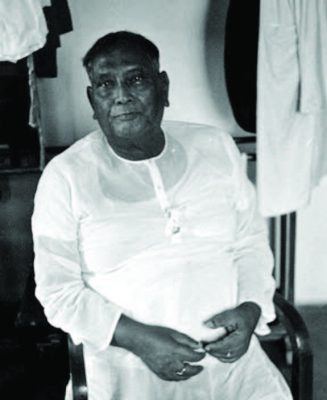
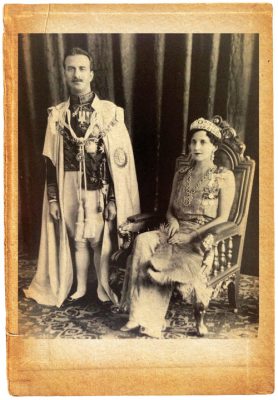
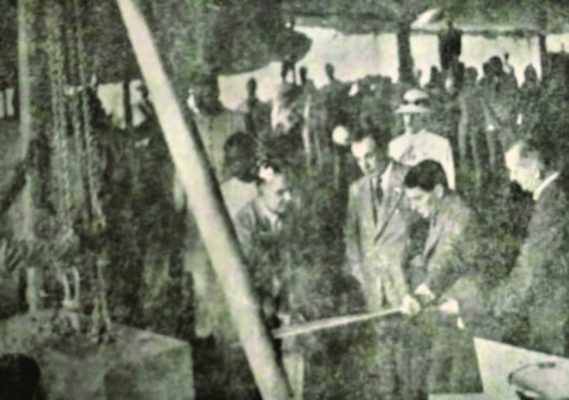
- Establishment: Hostel opened to students from all communities after 1947.
- Initial Classes: Classes for Intermediate Arts began in July 1939 with 35 Muslim girls.
- First Principal: Miss F. E. Grose appointed as the first permanent Principal.
- Faculty: Started with 9 faculty members covering subjects like English, Bengali, Urdu, Persian, Arabic, Logic, Philosophy, History, Mathematics, and Civics/Economics.
- Governing Body: Included notable members such as Begum Hamida Momem and Mrs. Hasina Murshed, MBE.
- World War II Impact: College requisitioned for military use; classes shifted to David Hare Training College, but continued with correspondence courses successfully.
- Return: The college returned to its premises in June 1946.
- Communal Riots: College closed for three months in August 1946 due to riots, serving as a relief center and hospital.
- Affiliation: Affiliated with the University of Calcutta; initially offered Pass papers in several subjects, later expanded to Honors level.
- Curriculum Expansion:
1941: Introduction of Sanskrit, Chemistry, Physics, Geography.
1950-51: Added Zoology and Botany.
1960: Introduced Political Science and Hindi. - Sociology Introduction: Became the first Government College in West Bengal to offer Sociology at Undergraduate level in 1988; became an Honours Course in 1994.
- Statistics Introduction: First women’s college to introduce Statistics as a Pass/General Paper in 2000; elevated to Honors Department in 2005 and established Microbiology in 2002.
Lady Brabourne College transitioned from an exclusively Undergraduate institution to offering Postgraduate Courses (P.G.) and Ph.D. programs starting in 2003, with the Geography Department leading the way. This was followed by the Microbiology Department in 2005, Mathematics in 2006, Physics in 2007, English in 2009, and Bengali in 2014. Each department now hosts an Advanced Research Centre approved by the University of Calcutta. In 2016, four new P.G. courses were introduced in Botany, Chemistry, Zoology, and Political Science, bringing the total number of Postgraduate Departments to 10.
The college fosters a harmonious, secular environment, exemplified by an anecdote involving Sarojini Naidu. When visiting, she could not find sindur in the Murshed household and humorously requested lipstick from Attiya Murshed to dot her forehead. Naidu credited Lady Brabourne with nurturing her early passion for sports, which eventually led her to receive a National Award.
Established as the first institution for Muslim women’s education, Lady Brabourne College has evolved into a multicultural educational hub for students from across India and abroad. Today, it is a premier women’s college in West Bengal, known for its cosmopolitan atmosphere and commitment to holistic development in women’s education.
VISION
To empower and emancipate women by imparting meaningful and quality education.
MISSION
To enhance harmony, humanism and social responsibility through the creation of conscious and concerned citizens who would be dynamic agents of a new social order based on human dignity, equality, and justice.
Memorandum of Agreement / Memorandum of Understanding
Department of Computer Training
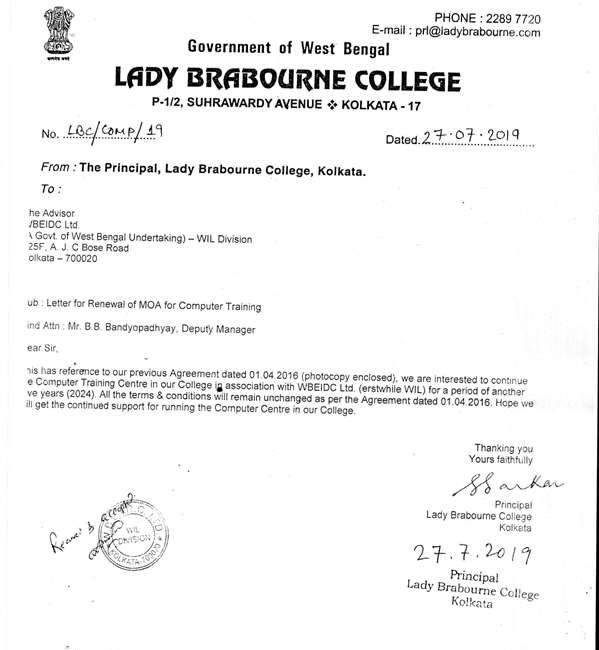
MOU with Department of Biotechnology
MOU in the year 2023
MOU between Dept. of English, Lady Brabourne College with English department of Basanti Devi College, Kolkata
MOU between English Department, Lady Brabourne College with English department of Basanti Devi College, Kolkata is to develop educational and research activities and collaboration between the two institutions for enrichment and sharing of knowledge
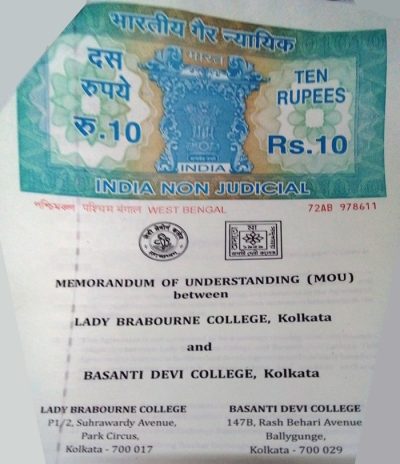
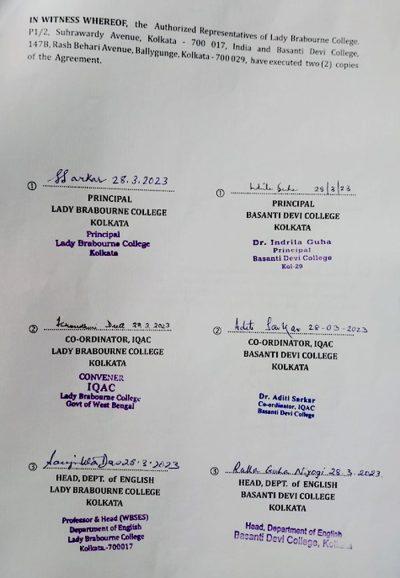
MOU between History Department, Lady Brabourne College with the History department of Ramakrishna Sarada Mission Vivekananda Vidyabhavan
MOU between History Department, Lady Brabourne College with the History department of Ramakrishna Sarada Mission Vivekananda Vidyabhavan, Kolkata is to develop academic and educational collaboration through faculty exchange, student exchange, seminars, talks and resource exchange between them.
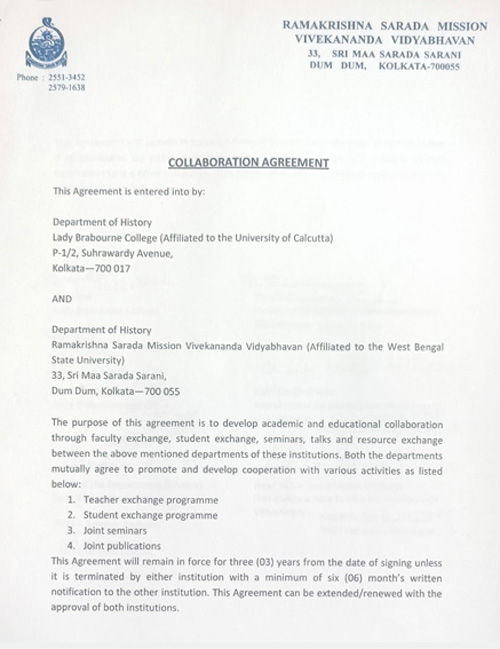
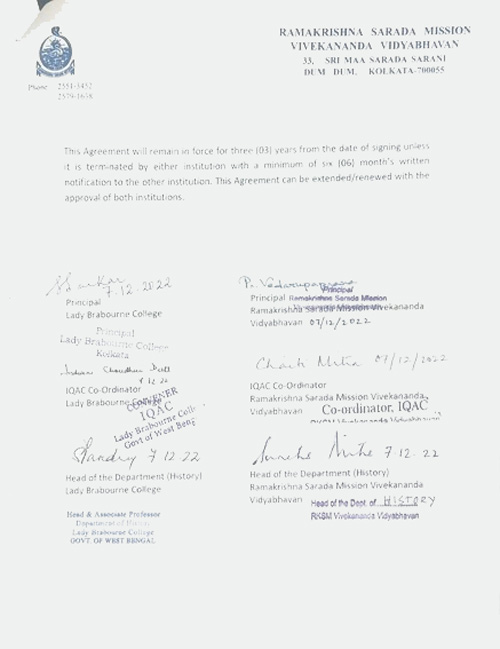
MOU between Political Science department of Lady Brabourne College with Political Science department of Basanti Devi College, Kolkata
MOU between Political Science department of Lady Brabourne College with Political Science department of Basanti Devi College, Kolkata is to develop academic and educational collaboration so that both the institutions are enriched.
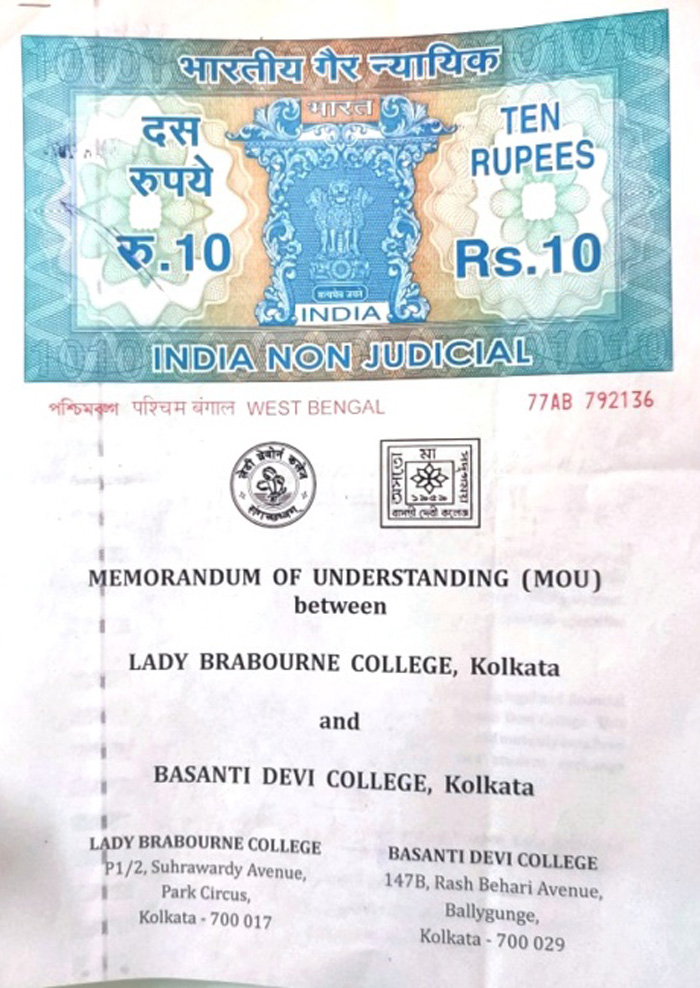
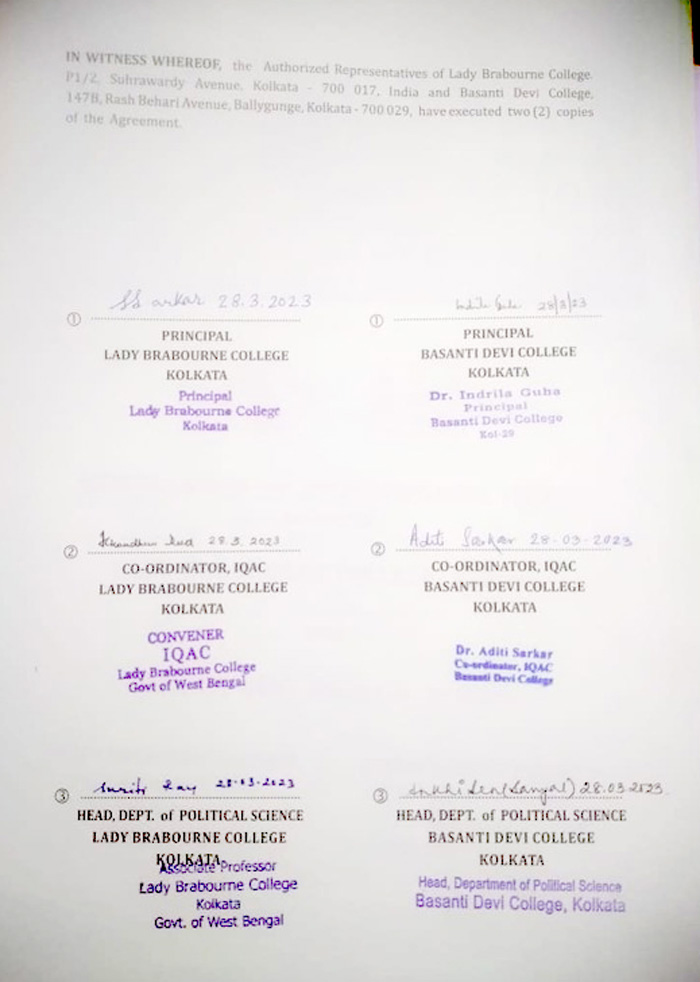
MOU between Political Science department, Lady Brabourne College with the Political Science department of Ramakrishna Sarada Mission Vivekananda Vidyabhavan, Kolkata
MOU between Political Science department, Lady Brabourne College with the Political Science department of Ramakrishna Sarada Mission Vivekananda Vidyabhavan, Kolkata is to develop educational and research collaboration between the two institutions.
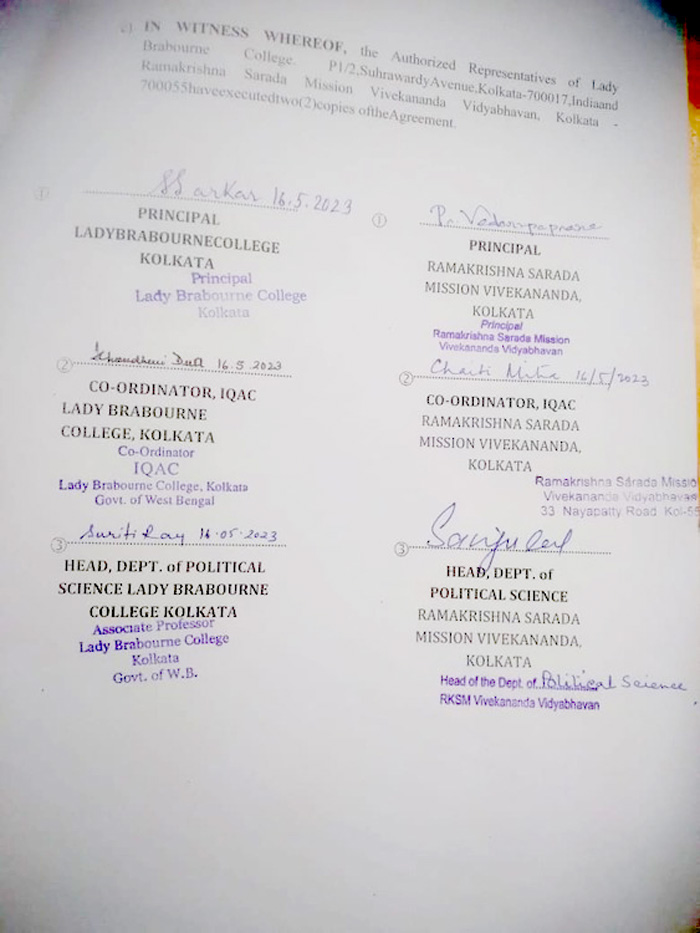

Institutional Development Plan
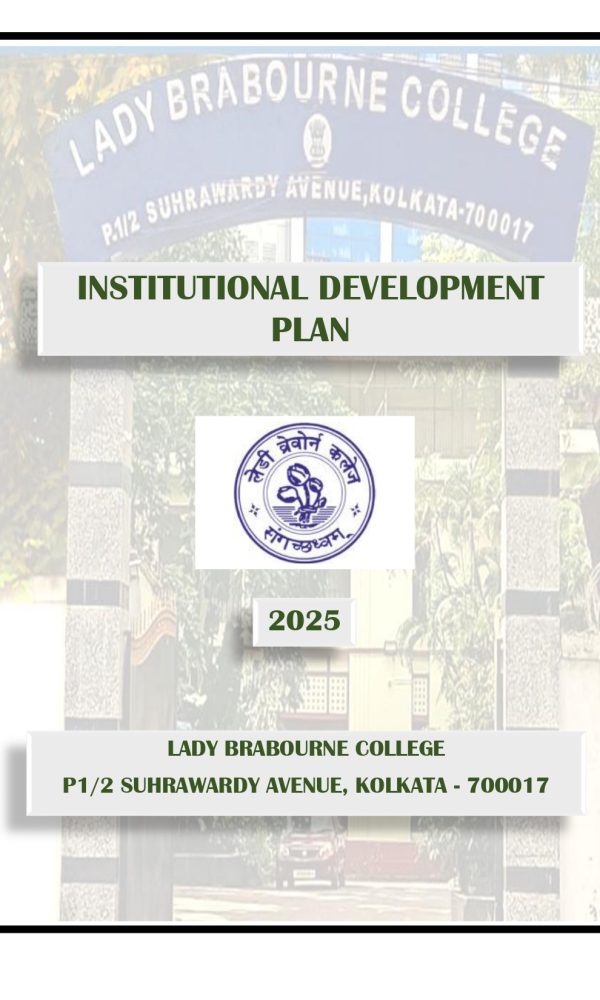
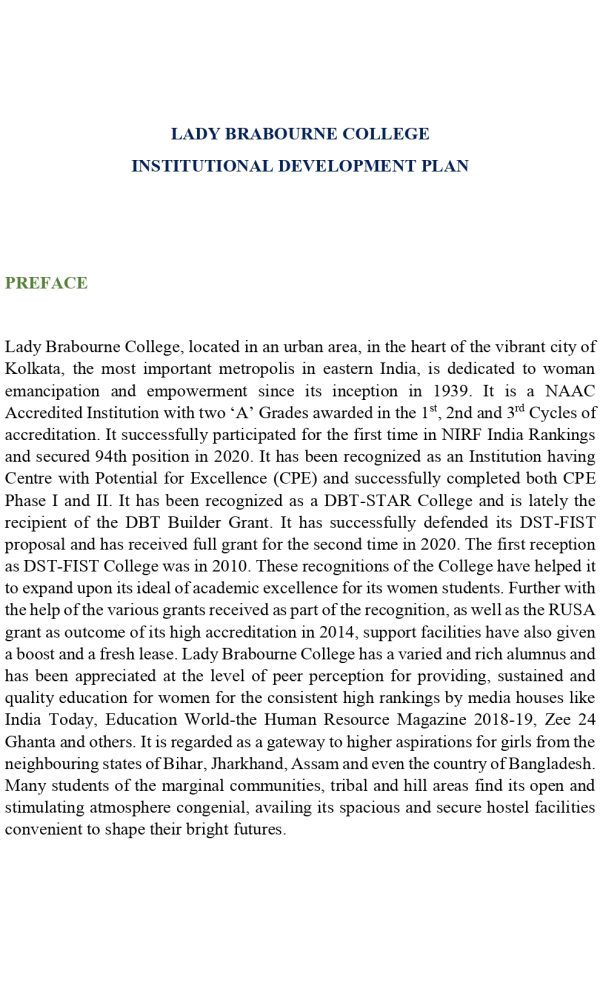
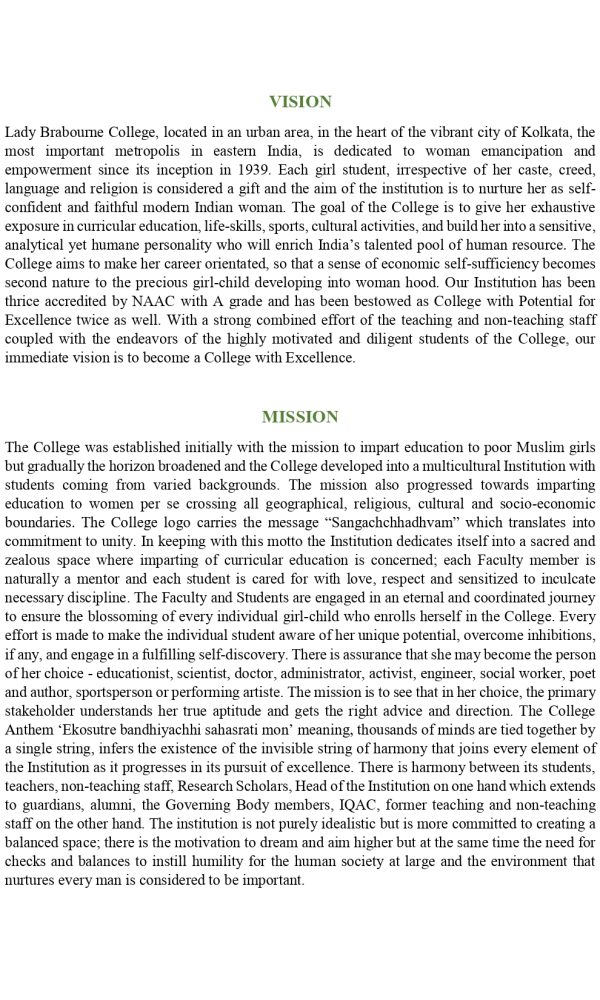

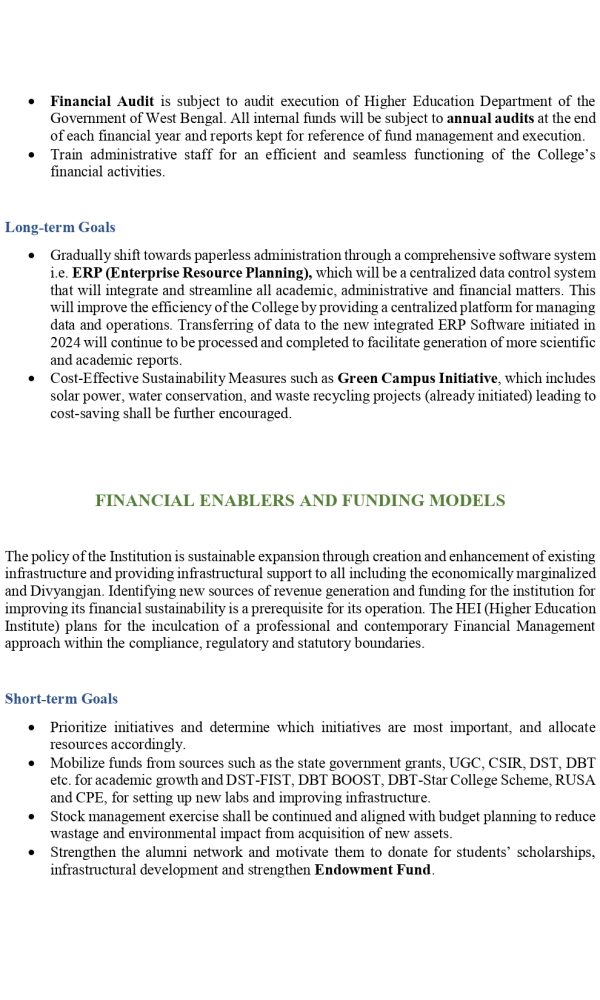
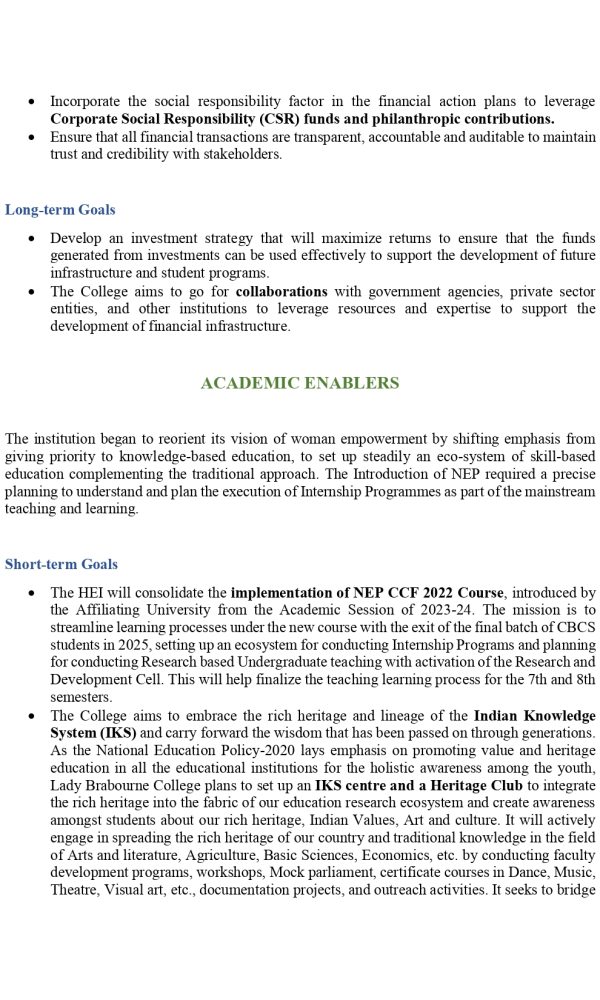
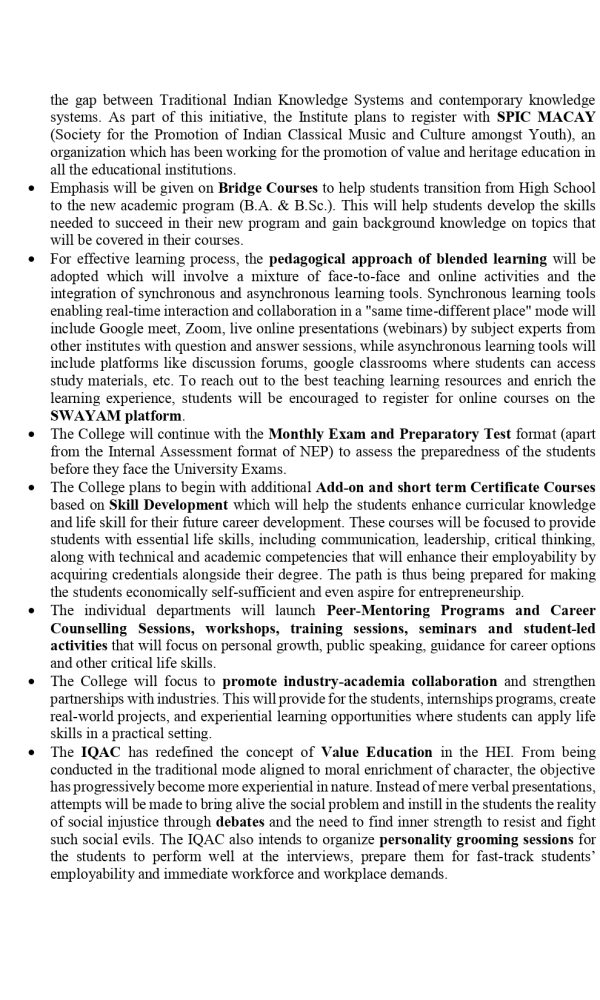
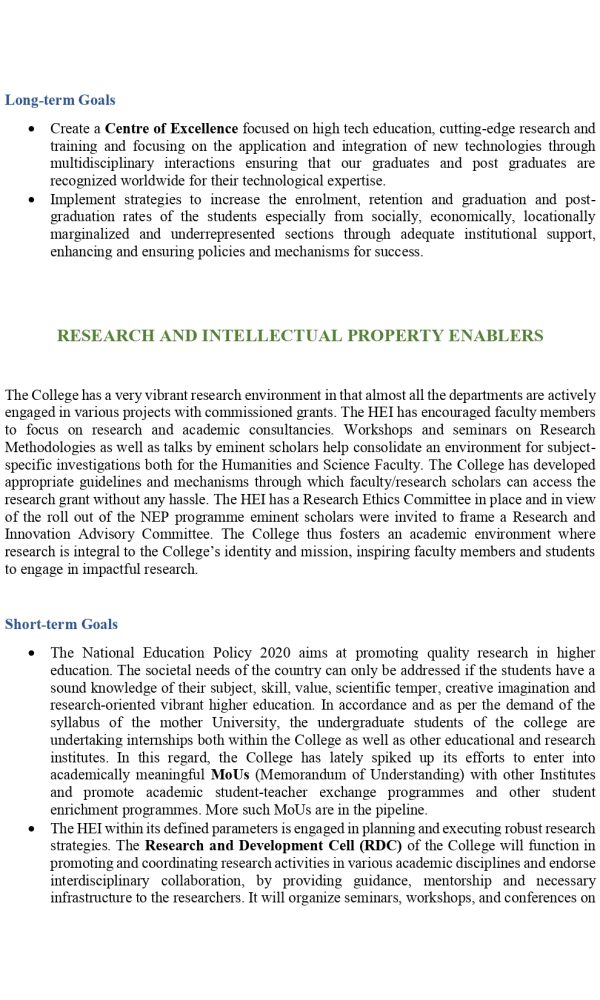
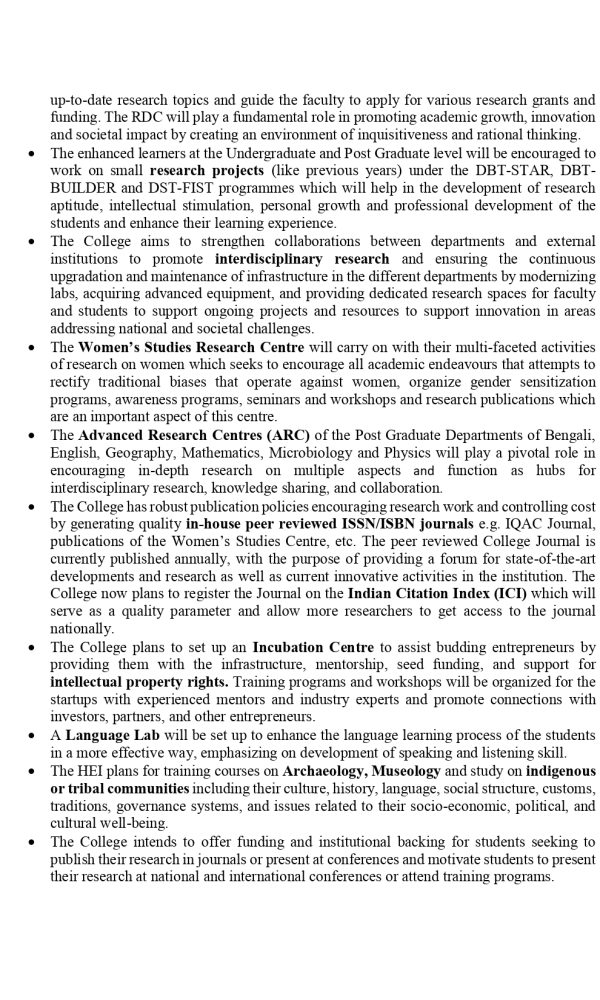
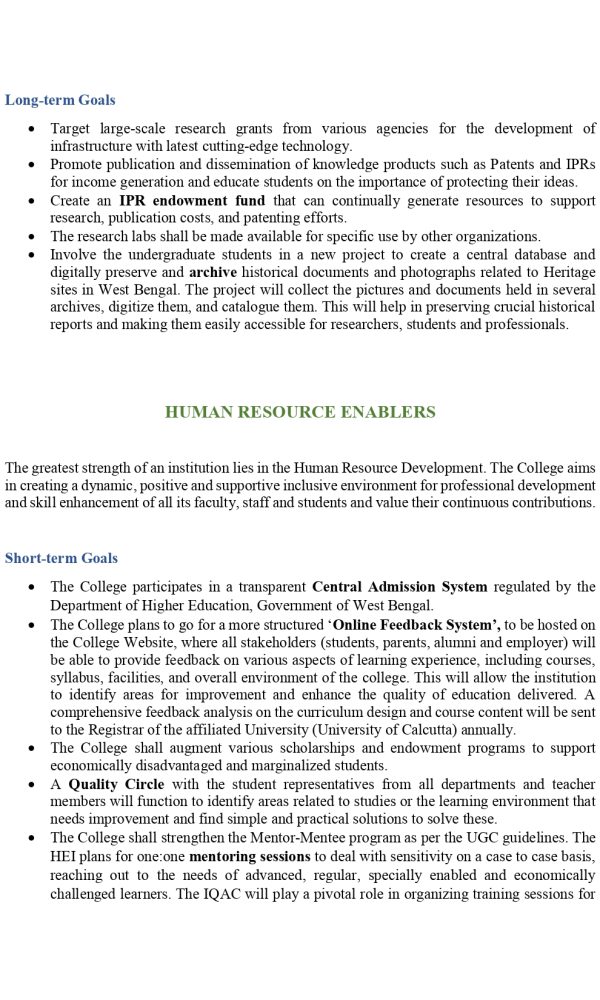
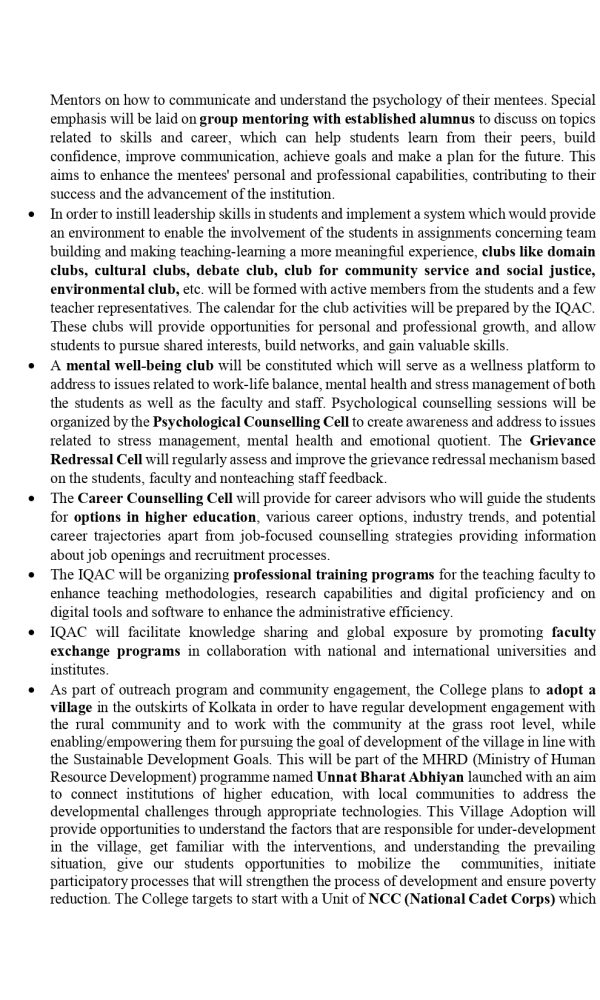
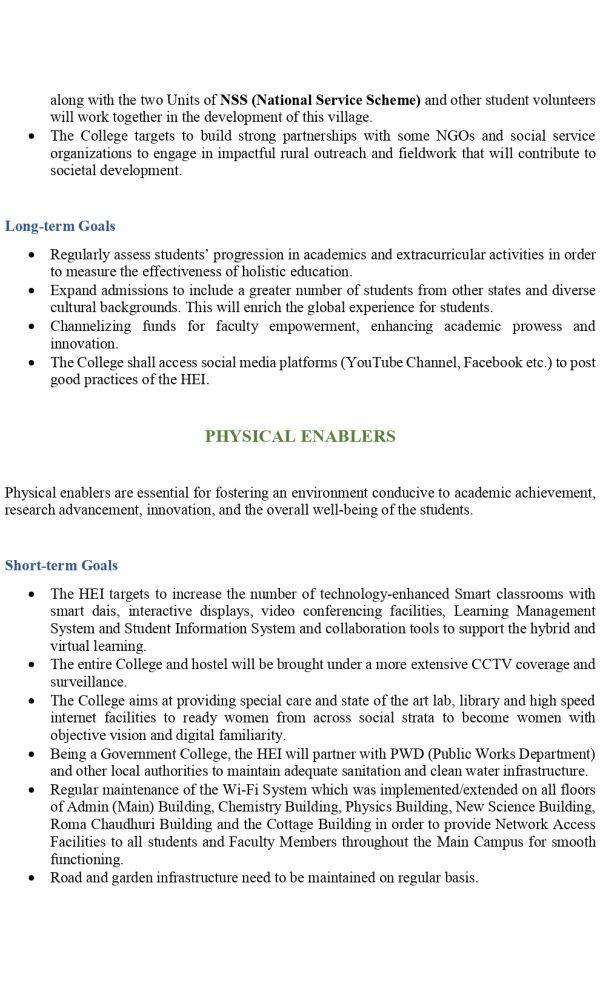
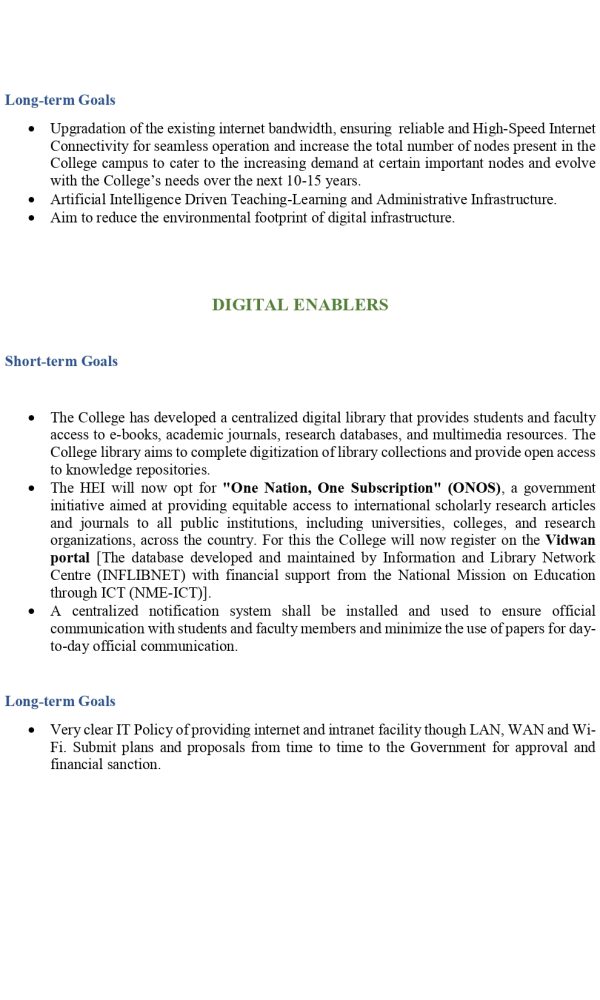
Affiliation
Lady Brabourne College is affiliated to the University of Calcutta. Under Graduate Courses in Bengali and English were the first courses to be introduced in 1939.
The first PG Course was introduced in Geography in the year 2003. At present, 19 UG Courses, 10 PG Courses and 2 General Courses running in the College.
Arts Subjects
| Sl. No. | SUBJECT | YEAR OF INCEPTION | YEAR OF INTRODUCTION AS INTERMEDIATE COURSE | YEAR OF INTRODUCTION AS UNDERGRADUATE PASS COURSE | YEAR OF INTRODUCTION AS UNDERGRADUATE HONOURSE COURSE | YEAR OF INTRODUCTION AS POSTGRADUATE COURSE |
|---|---|---|---|---|---|---|
| 1 | BENGALI | 1939 | 1939 | 1939 | 1941 | 2014 |
| 2 | ENGLISH | 1939 | 1939 | 1939 | 1941 | 2009 |
| 3 | HINDI | 1960 | – | 1960 | 2010 | – |
| 4 | HISTORY | 1939 | 1939 | 1939 | 1941 | – |
| 5 | PERSIAN | 1939 | 1939 | 1939 | 1941 | – |
| 6 | PHILOSOPHY | 1939 | 1939 | 1939 | 1941 | – |
| 7 | POLITICAL SCIENCE | 1960 | 1960 | 1960 | 1960 | 2016 |
| 8 | SANSKRIT | 1941 | – | 1941 | 1941 | – |
| 9 | SOCIOLOGY | 1988 | – | 1988 | 1994 | – |
| 10 | URDU | 1939 | 1939 | 1939 | 1941 | – |
| 11 | WOMENS’ STUDIES | 2010 | – | 2010 | – | – |
Click here to view the Document
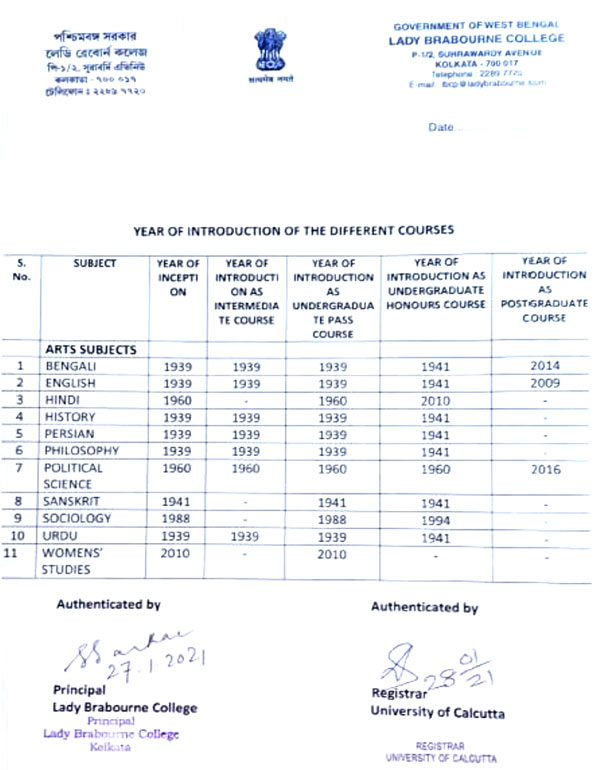
Science Subjects
| Sl. No. | SUBJECT | YEAR OF INCEPTION | YEAR OF INTRODUCTION AS INTERMEDIATE COURSE | YEAR OF INTRODUCTION AS UNDERGRADUATE PASS COURSE | YEAR OF INTRODUCTION AS UNDERGRADUATE HONOURSE COURSE | YEAR OF INTRODUCTION AS POSTGRADUATE COURSE |
|---|---|---|---|---|---|---|
| 12 | BOTANY | 1950 | 1950 | 1950 | 1960 | 2016 |
| 13 | CHEMISTRY | 1941 | 1941 | 1958 | 1960 | 2016 |
| 14 | ECONOMICS | 1939 | 1939 | 1939 | 1960 | – |
| 15 | GEOGRAPHY | 1939 | 1939 | 1941 | 1944 | 2003 |
| 16 | MATHEMATICS | 1939 | 1939 | 1939 | 1960 | 2006 |
| 17 | MICROBIOLOGY | 2002 | – | – | 2002 | 2005 |
| 18 | PHYSICS | 1941 | 1941 | 1958 | 1963 | 2007 |
| 19 | STATISTICS | 2000 | – | 2000 | 2005 | – |
| 20 | ZOOLOGY | 1950 | 1950 | 1960 | 1974 | 2016 |
| 21 | COMPUTER SCIENCE | 2007 | – | 2007 | – | – |
Click here to view the Document
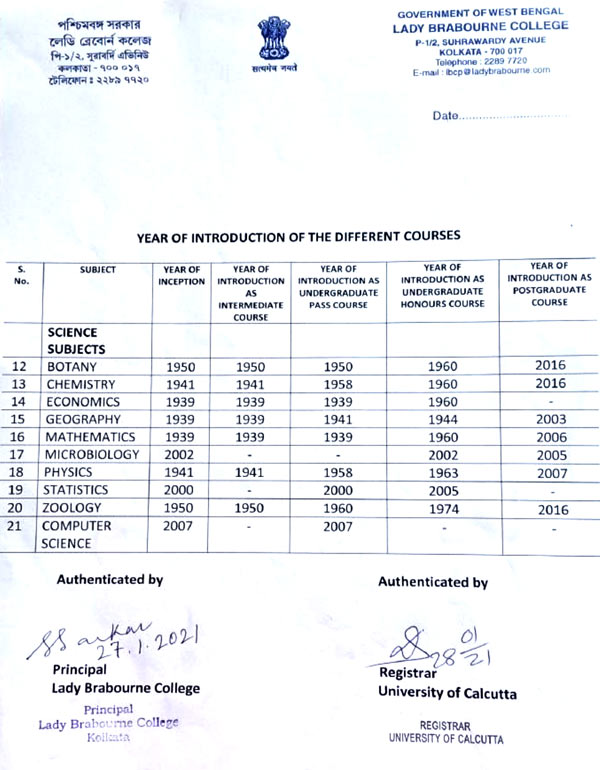
Accreditation / Ranking
NAAC 2006 Accredited with Grade-A

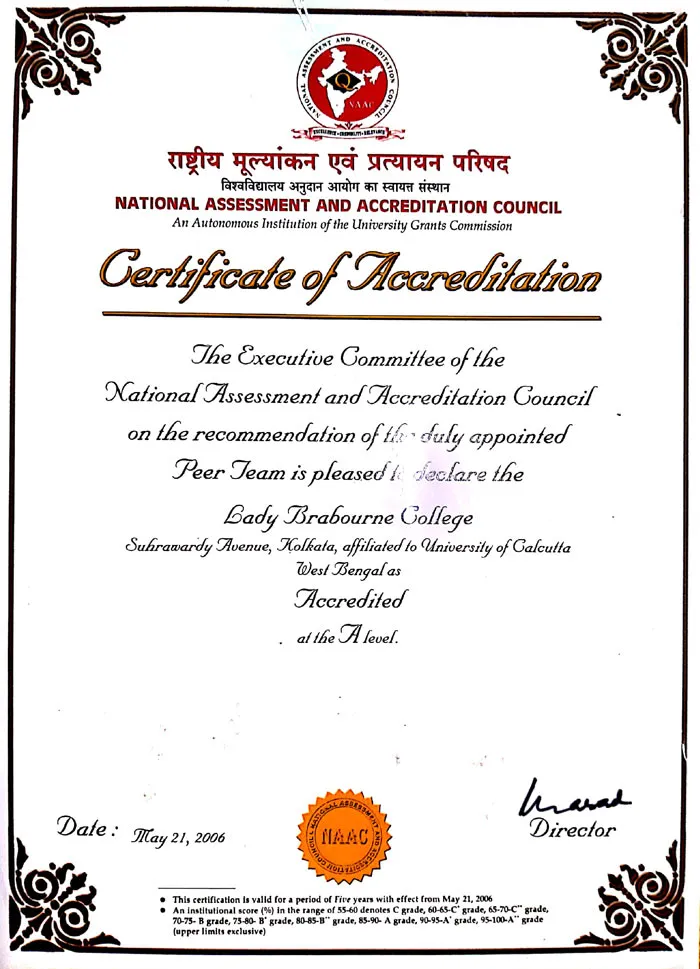
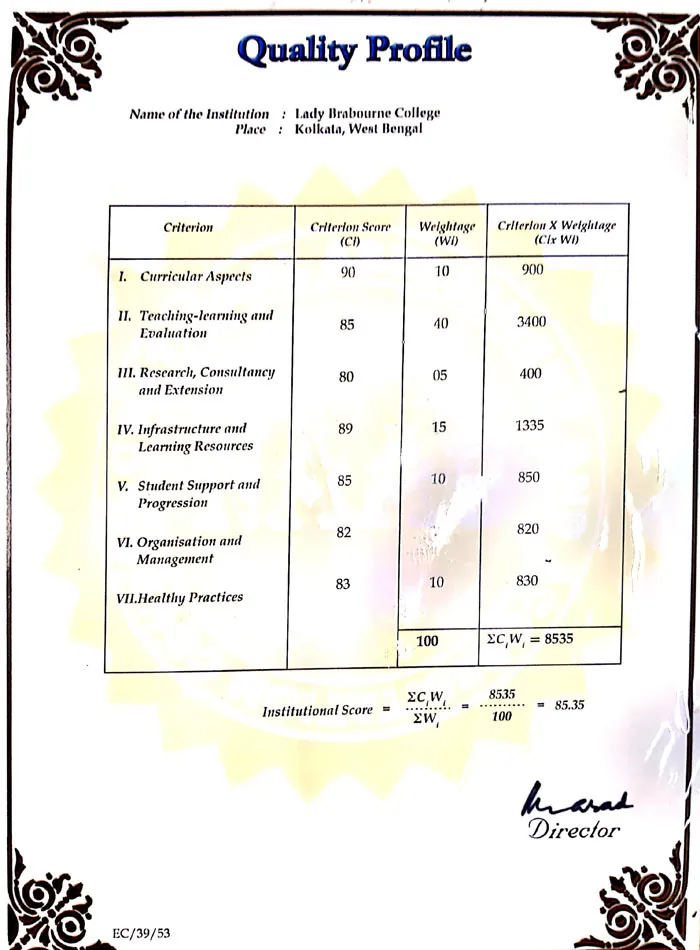
NAAC 2014 Accredited with Grade-A

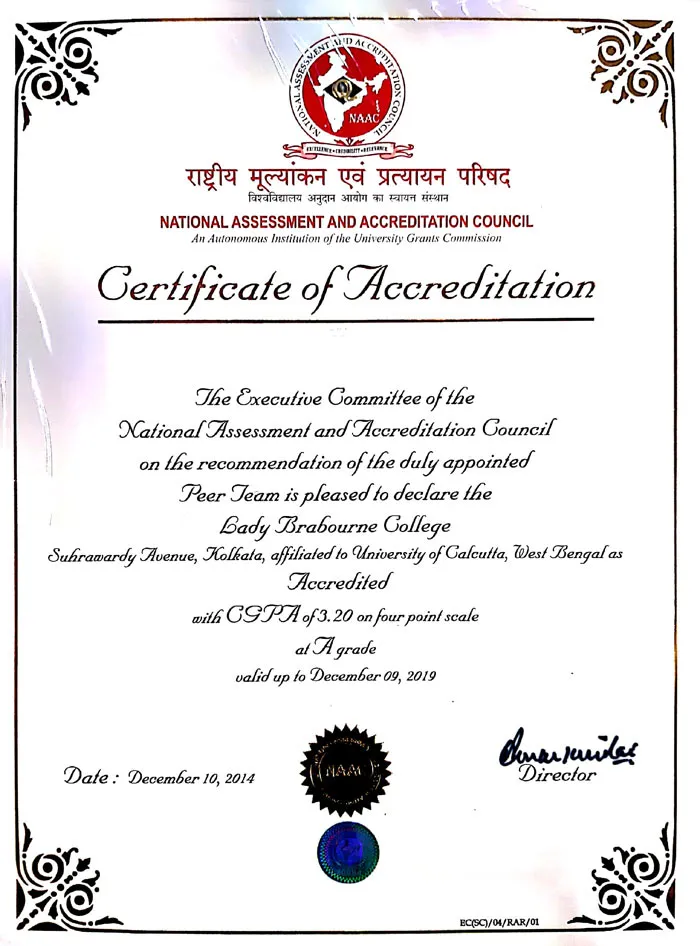
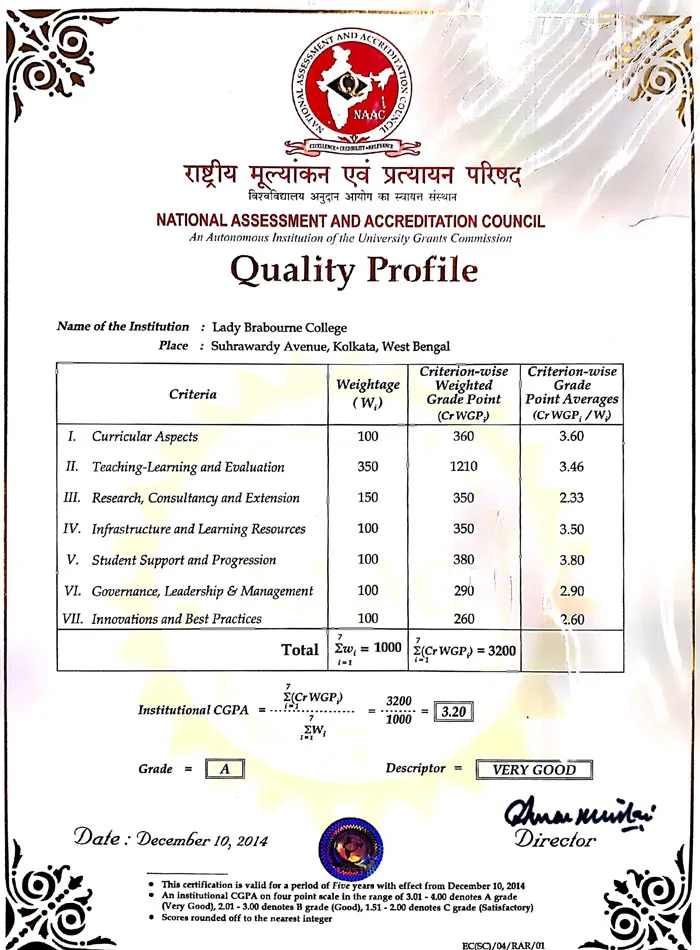
NAAC 2022 Accredited with Grade-A

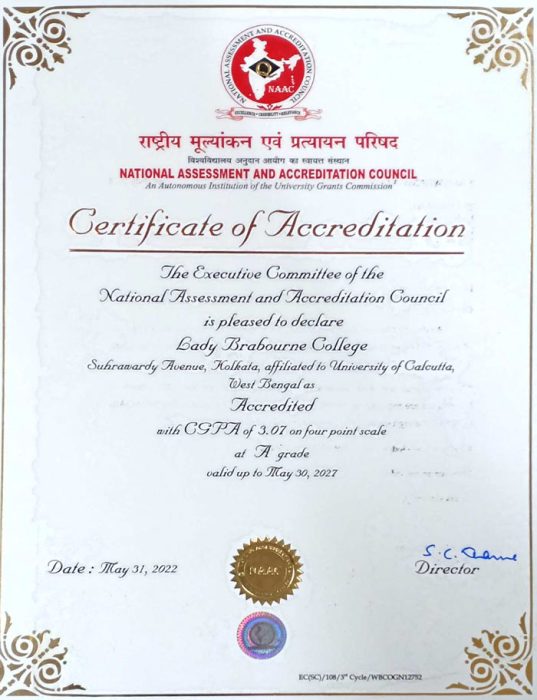
India Today Ranking
2021
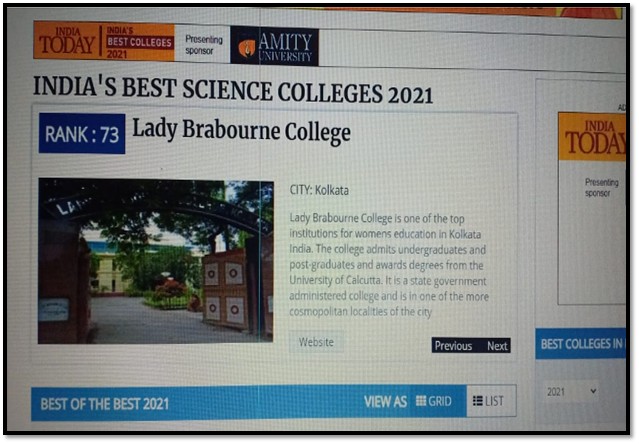
2022
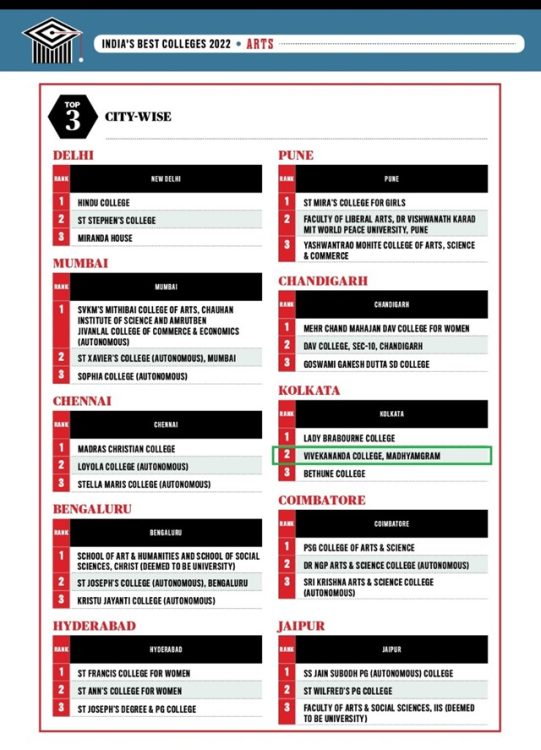
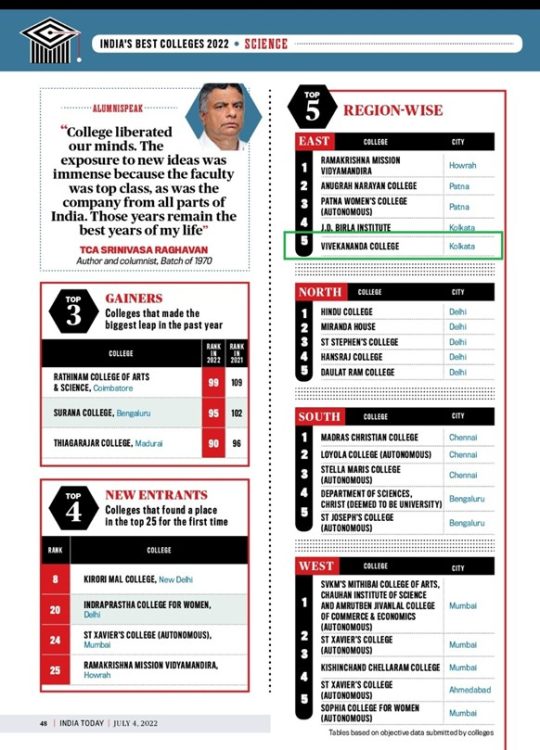
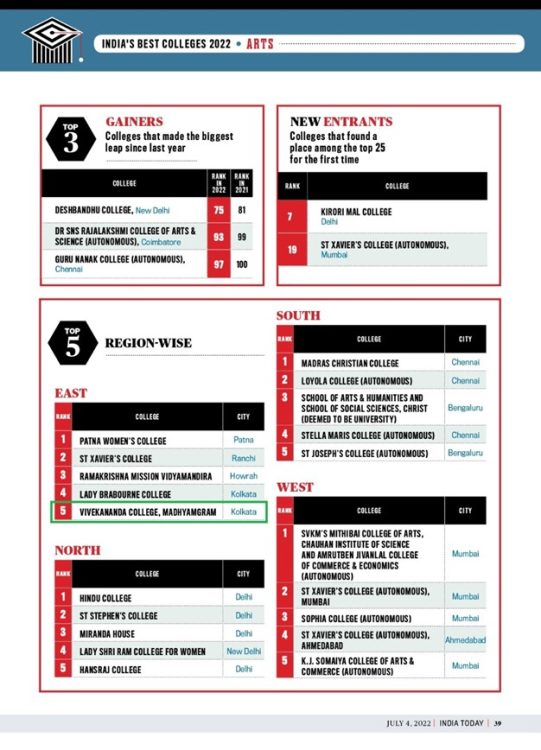
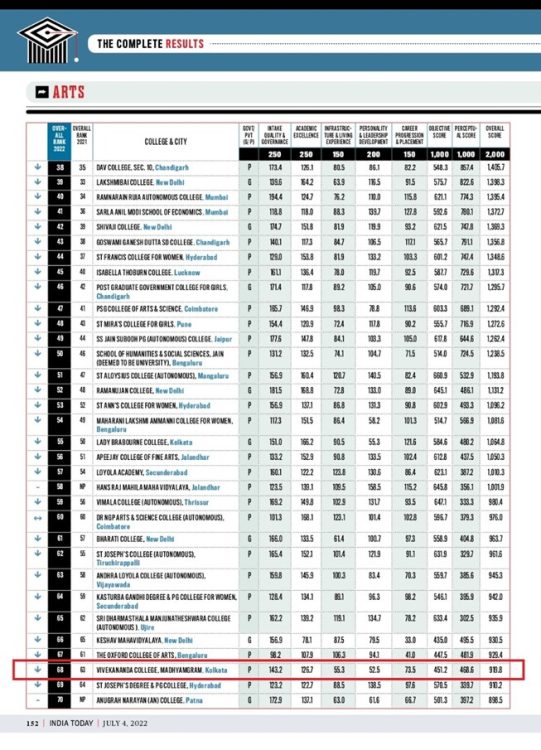
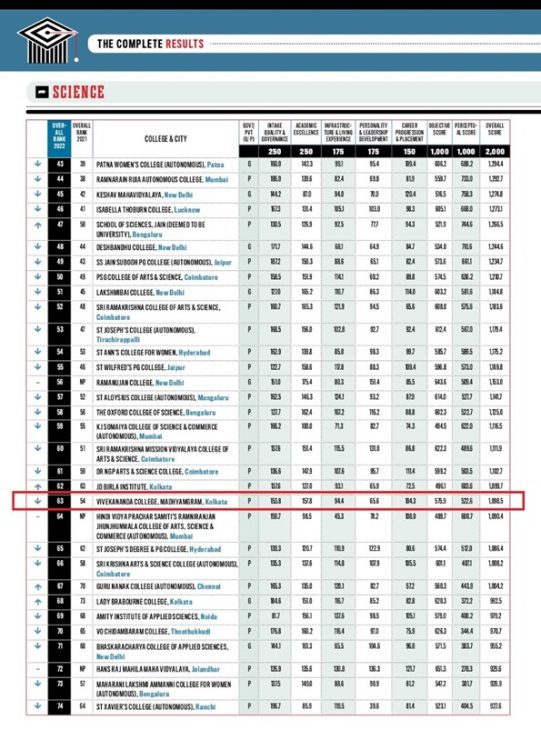
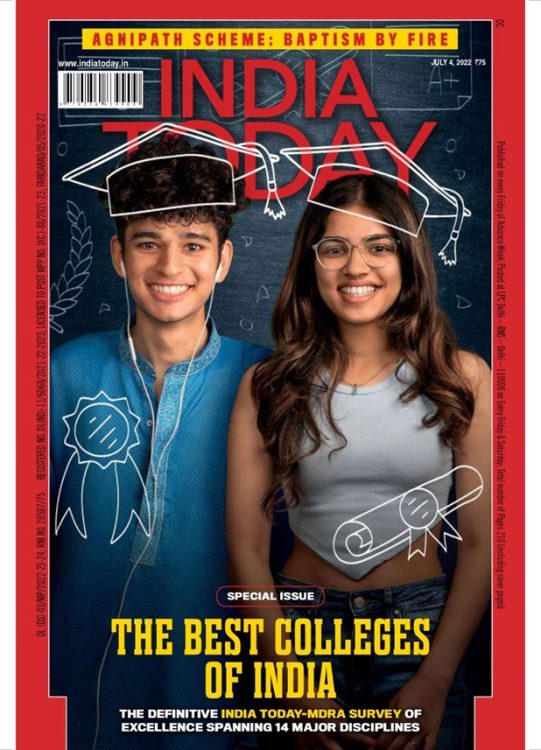
2023
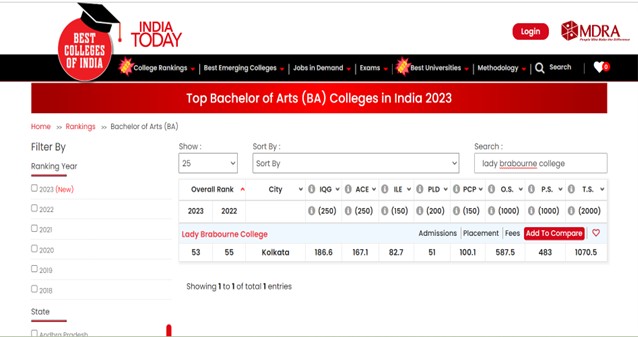

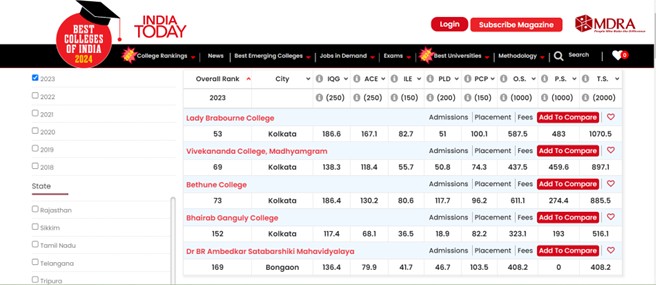
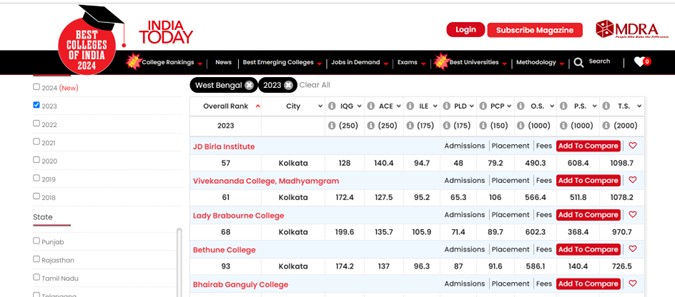
2024
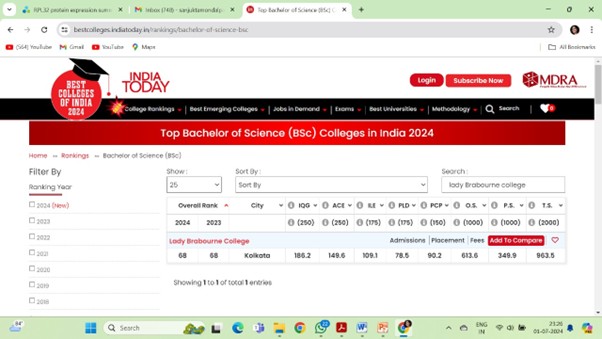
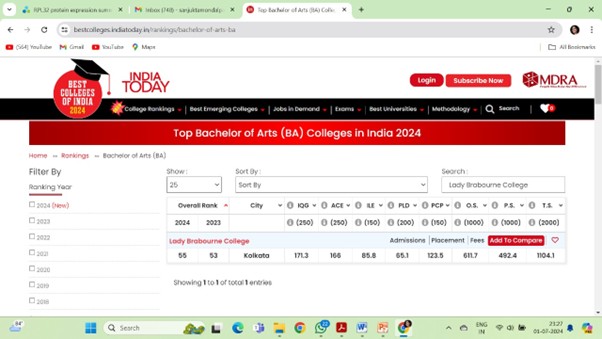
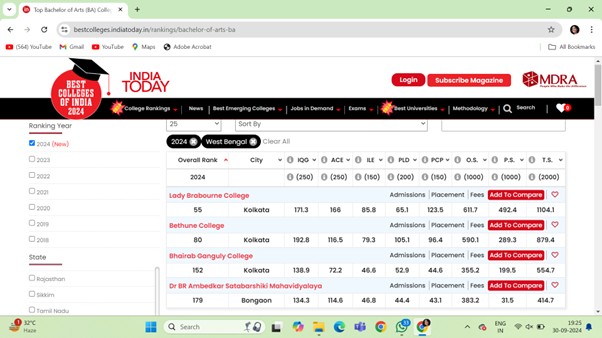
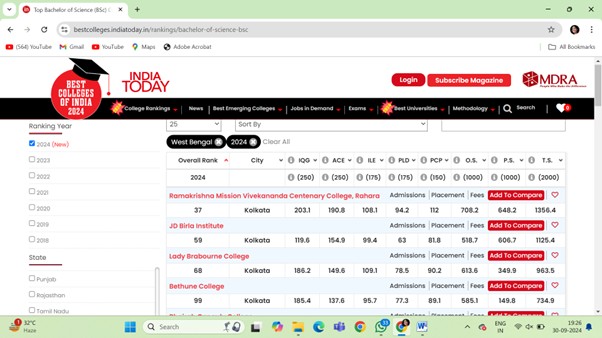

Education World Ranking 2021-22
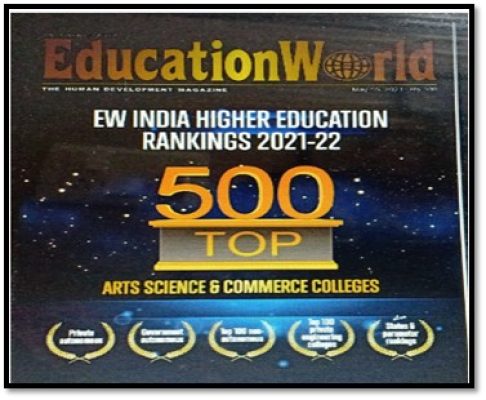
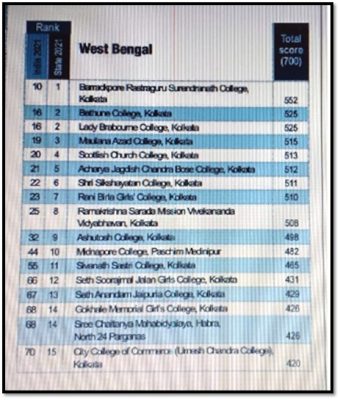
Education Eminence Award by News 18 Bangla, 2021
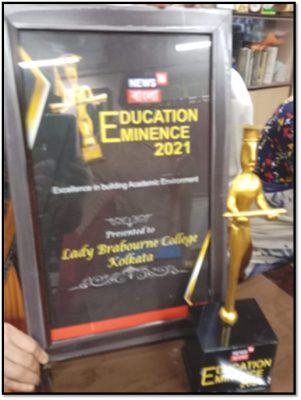
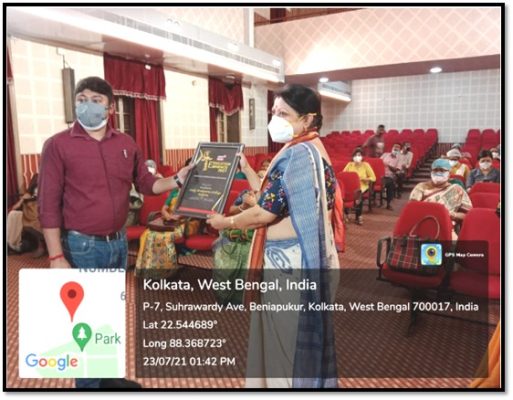
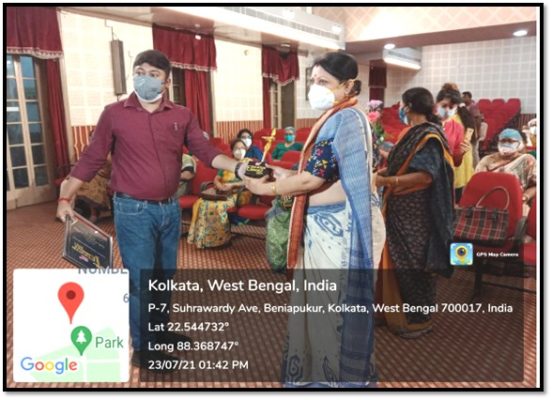
Education Excellence Award by Zee 24 Ghanta, 2018
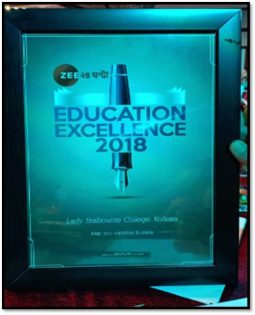
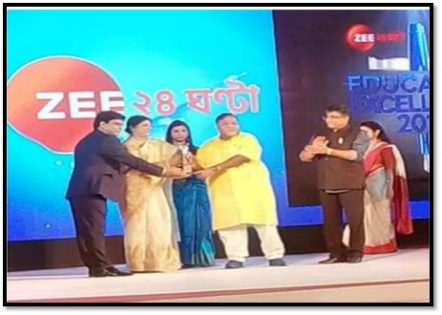
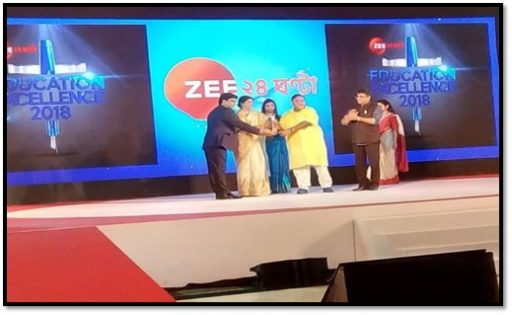
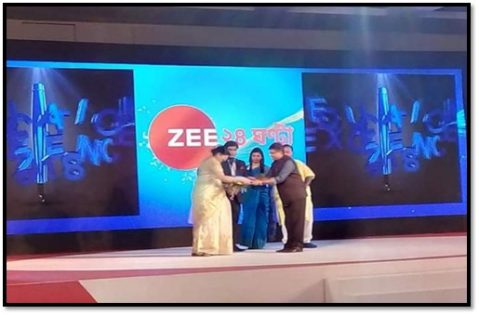
Recognition / Approval
2F and 12B
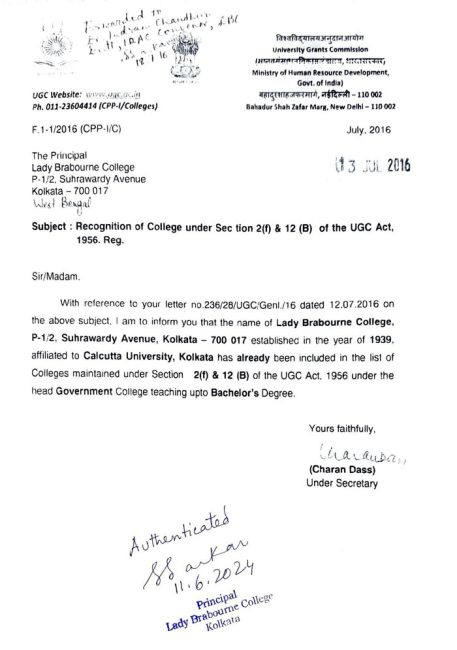
Annual Reports

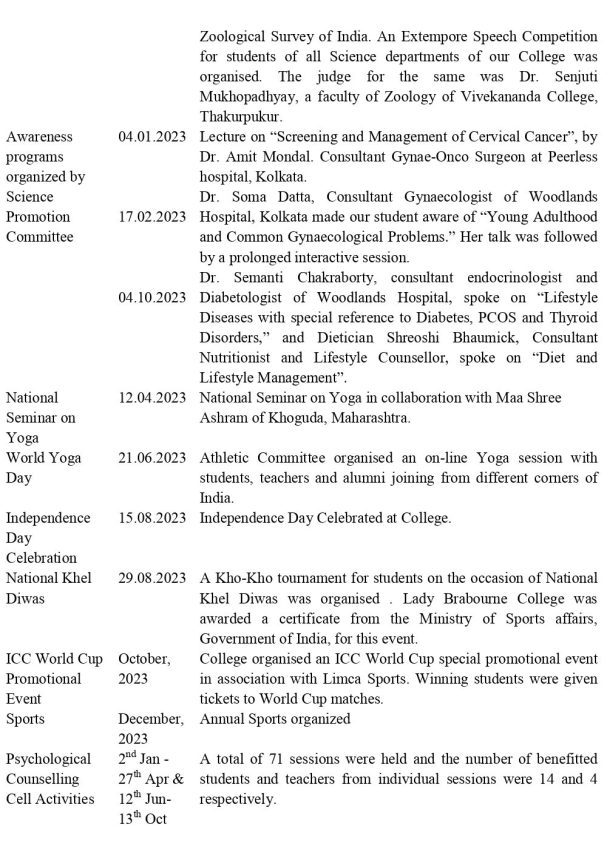

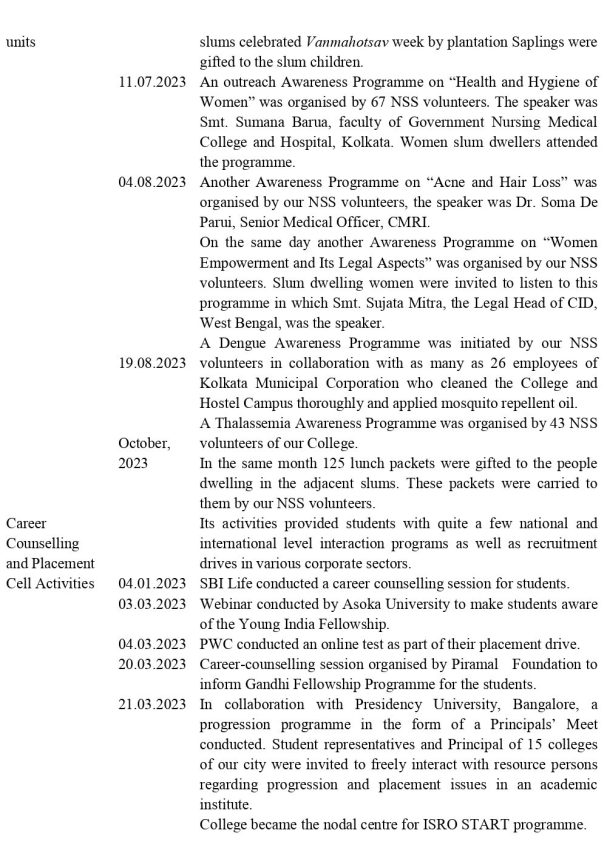
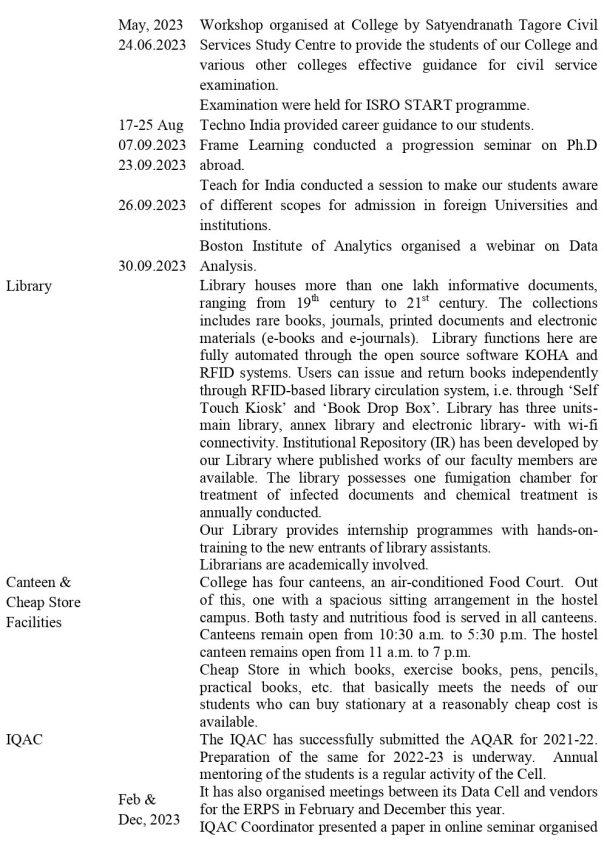
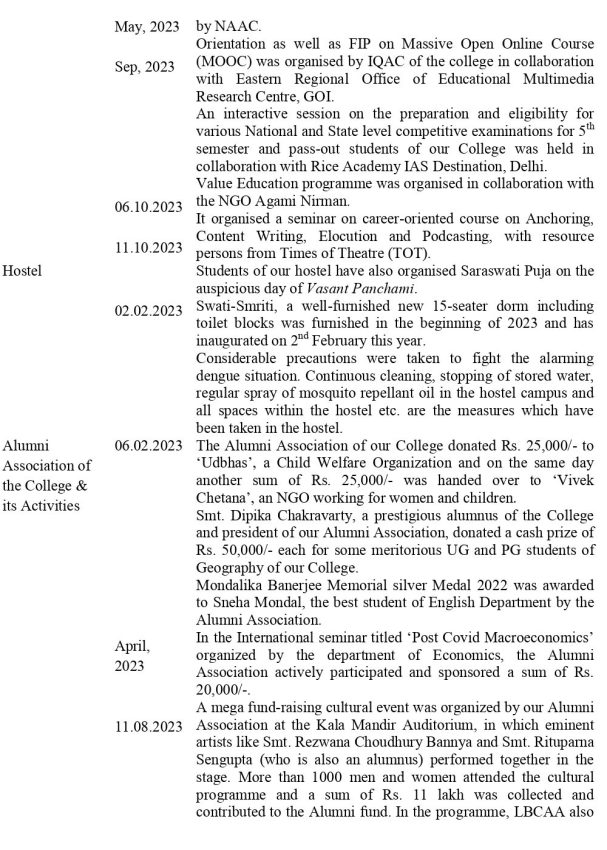

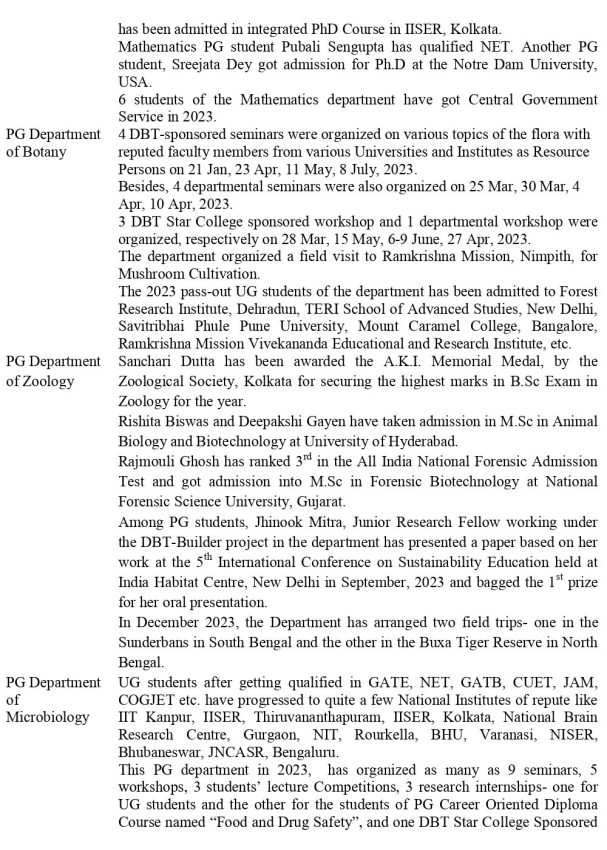
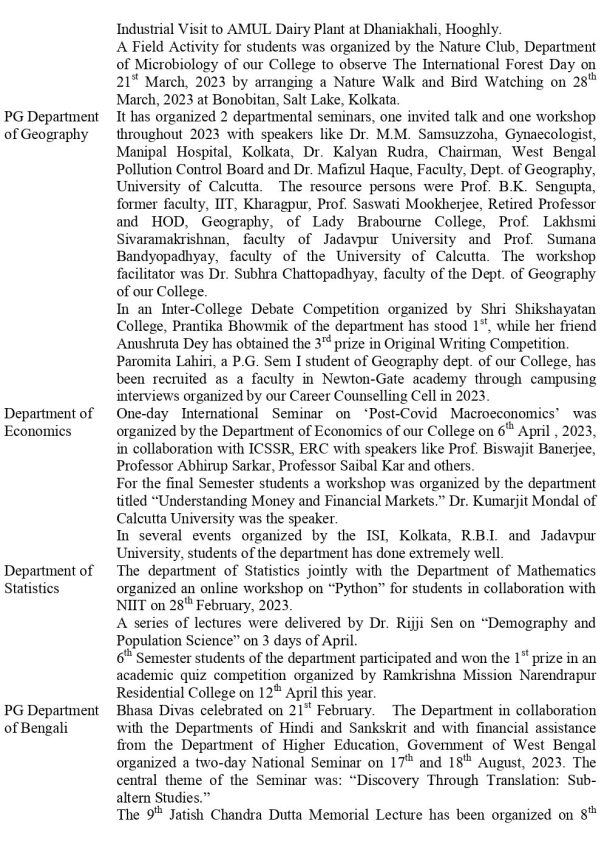
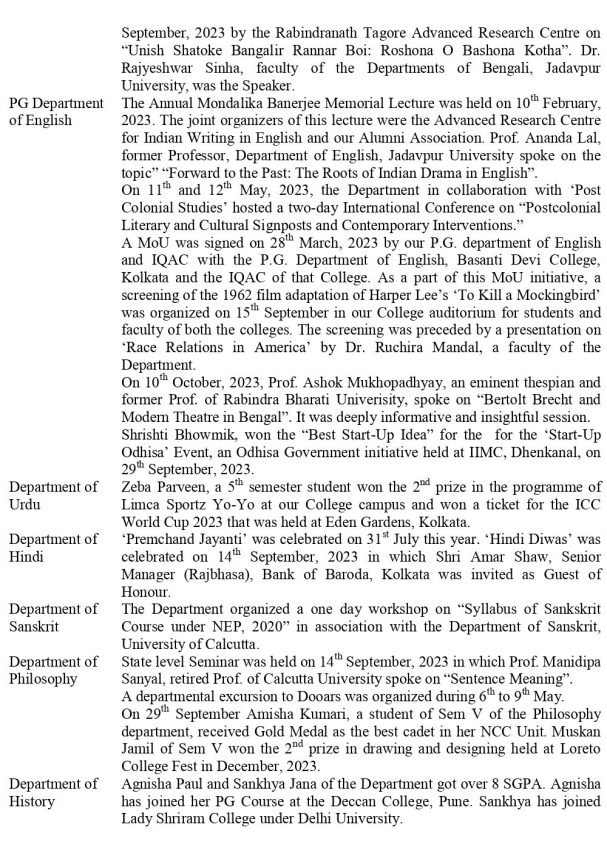
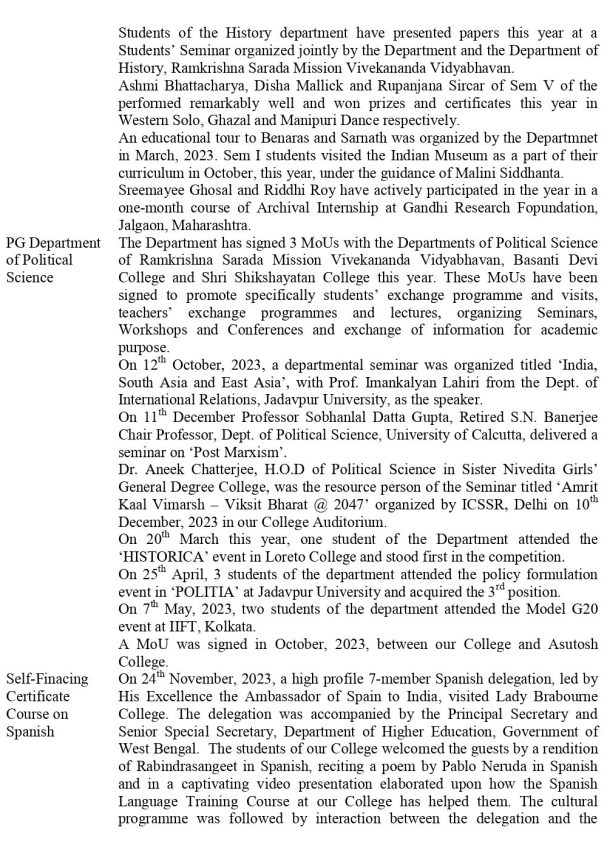
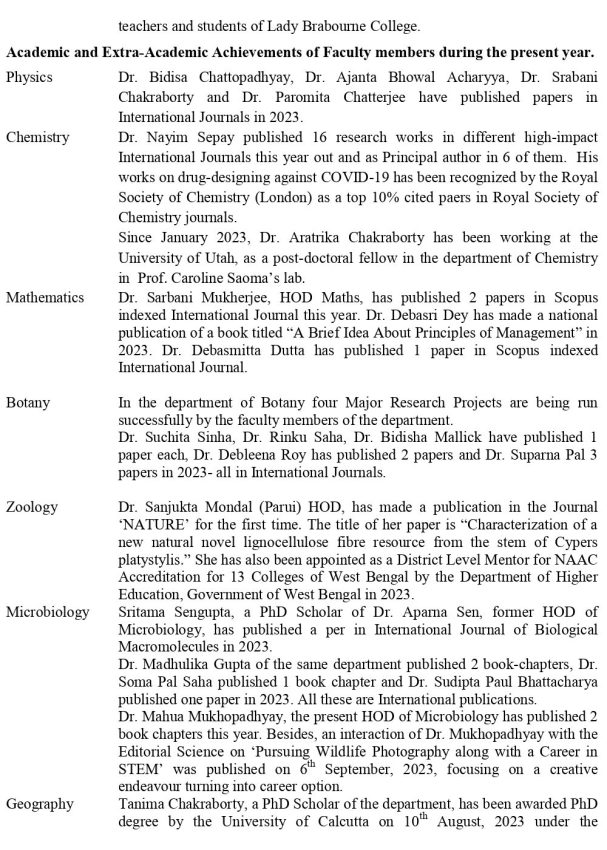
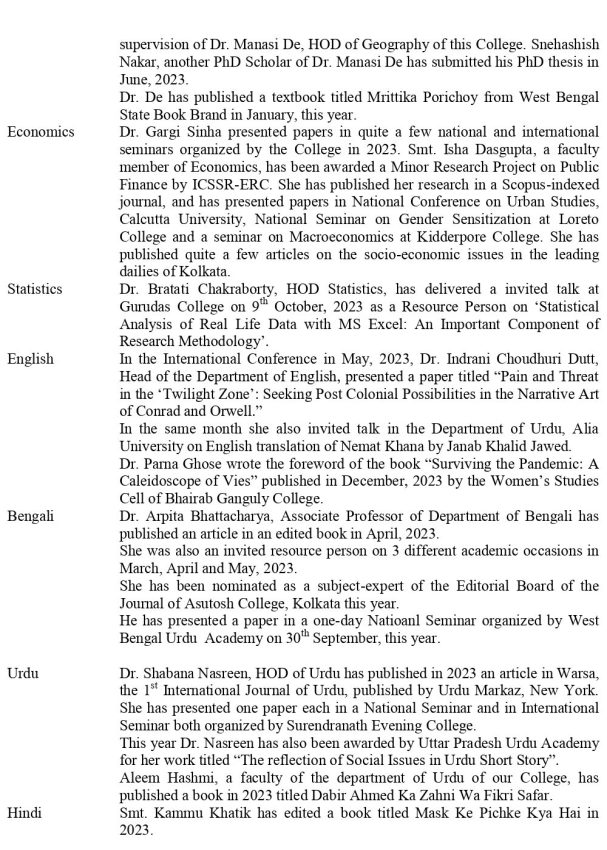
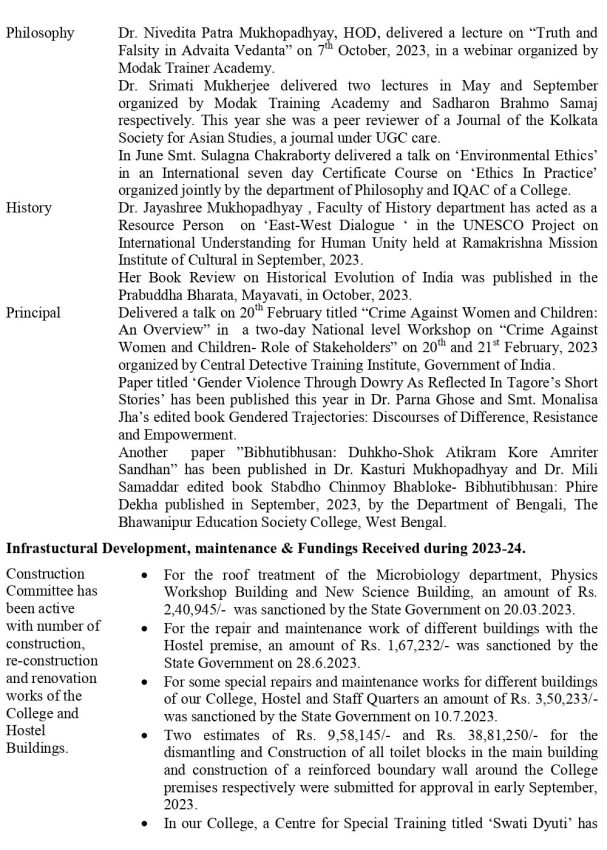
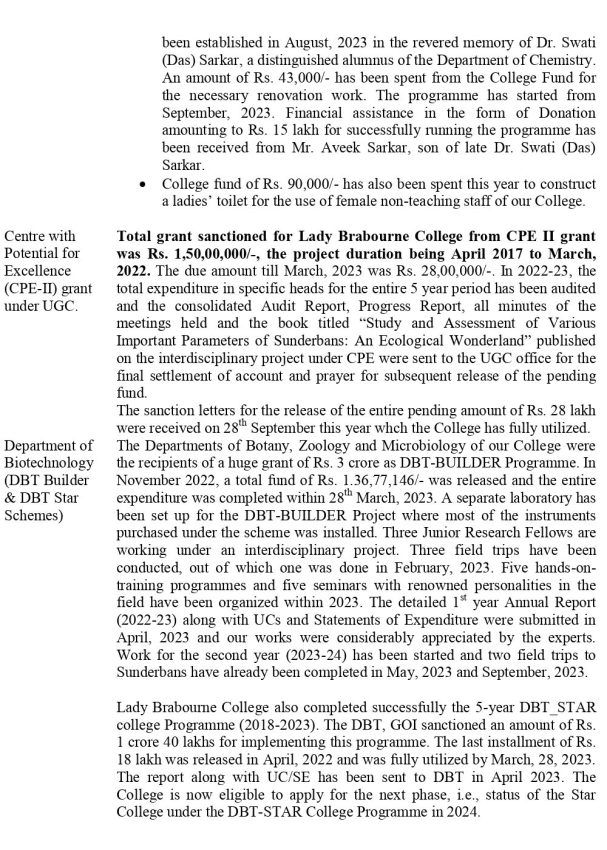
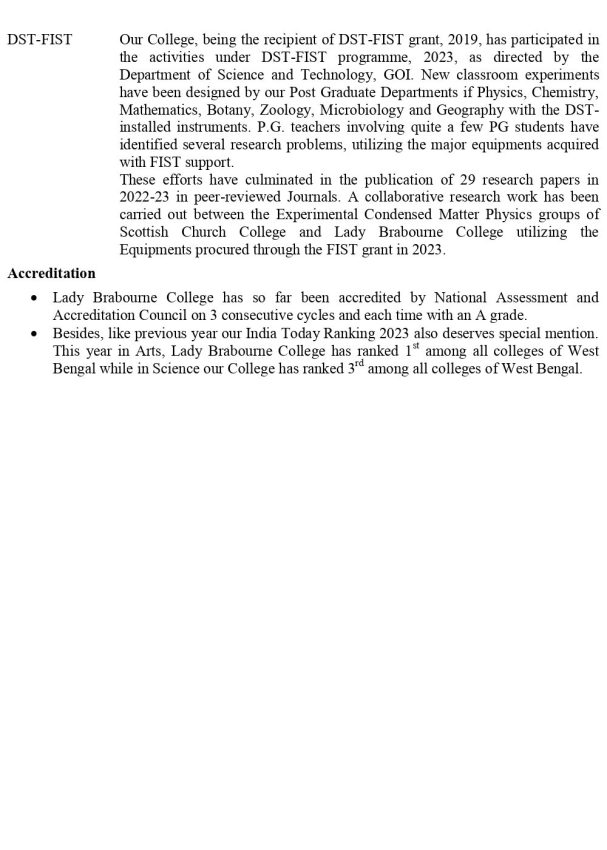
Audit Reports
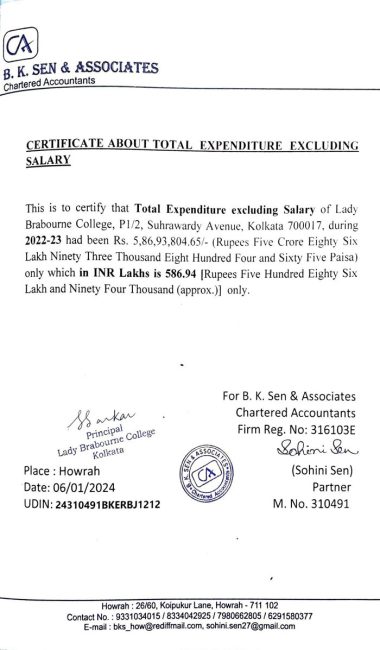
Procedures And Policies
PROCEDURES AND POLICIES FOR MAINTAINING AND UTILIZING PHYSICAL, ACADEMIC AND SUPPORT FACILITIES – LABORATORY, LIBRARY, SPORTS COMPLEX, COMPUTERS, CLASSROOMS, ETC.
POLICY
- The Institution focuses on woman empowerment.
- It believes that a well provided and developing infrastructure will improve scope of the College’s vision and mission.
- In quarterly Governing Body Meetings and regular IQAC meetings a key and mandatory agenda is to consider general and departmental infrastructure.
- There is usually a dedicated Committee for example the Library Committee, the Athletics Committee, Computer Committee who maintain a constant vigil for requirement and up-gradation.
- For classrooms, laboratories respective departmental Heads, majority of whom are IQAC members concern with planning of need and requirement.
- Two teacher-members of the IQAC represent the College for liaising with the PWD for routine upkeep of facilities and structure and also follow up of ongoing work.
- Student awareness regarding handling of equipment and sustaining a clean and green campus belonging to them is often the focus of IQAC Value Education.
PROCEDURES
- The Principal and members of the IQAC prepare proposals for major grants like RUSA, CPE etc
- The Principal and members of the IQAC scrutinize proposals submitted by departments.
- The GB is involved in discussion and decision making as well.
- Detailed Project Plans (DPRs) are prepared with consultation with executive bodies such as the PWD and other concerns authorized by the Higher Education.
- For regular maintenance and upkeep the PWD Committee engages itself with the Chief and Assistant engineers of the PWD under the stewardship of the Principal trying to bring about speedy and seamless execution of jobs to minimize inconvenience to stakeholders.
- For special and more turnkey type projects funded by extra grants such as RUSA more complex and very time oriented execution is planned by process such as Limited Tender Inquiry (LTI) in close consultation with the Higher education department.
- Stock Registers, Annual Maintenance Contracts are assiduously maintained and put to use for lab-based, digital and utility oriented equipment. Some of the equipment so maintained include Internet Facility and computers, State of the art lab machinery, Air Conditioners, CC TV cameras, Water purifiers.
- Floor-wise load distribution of cleaning staff for regular maintenance of hyegiene.
- Only female staff are employed in the toilet blocks used by girl students.
- Periodic special cleaning drives, plastic control programme, are additional features.
